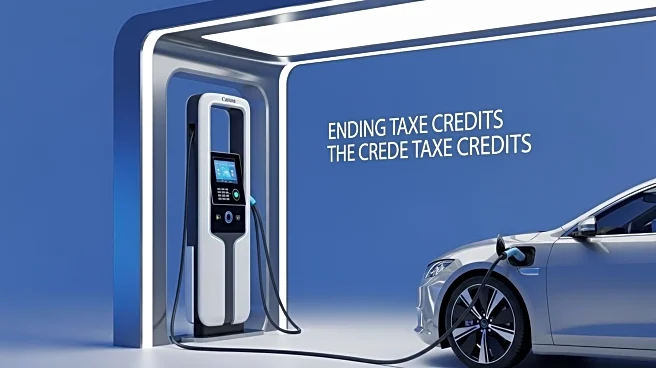What's Happening?
The federal tax credits for electric vehicles (EVs) and hybrid vehicles are set to expire soon, prompting potential buyers to act quickly. According to a report by KDKA, the incentives, which have been a significant factor in encouraging the adoption of EVs, will end next week. Em Nguyen from CarFax highlighted the urgency for consumers considering a switch to electric or hybrid vehicles to make their purchases before the credits are no longer available. The expiration of these credits could lead to a decrease in the affordability of EVs, which have been gaining popularity due to their environmental benefits and lower long-term operating costs.
Why It's Important?
The end of EV tax credits could have a substantial impact on the automotive industry and consumers. These incentives have played a crucial role in making electric vehicles more accessible to a broader audience by reducing the upfront cost. Without these credits, the financial barrier to entry for EVs may increase, potentially slowing the growth of the EV market. This change could also affect automakers who have invested heavily in electric vehicle technology and infrastructure, as they may face reduced demand. Additionally, the shift could influence environmental policy and efforts to reduce carbon emissions, as fewer consumers may opt for cleaner vehicle options without financial incentives.
What's Next?
As the expiration date for the tax credits approaches, consumers and automakers alike are likely to push for last-minute sales and purchases. There may also be increased lobbying efforts from the automotive industry and environmental groups to extend or reinstate these incentives. Policymakers will need to consider the long-term implications of this decision on both the economy and environmental goals. The outcome could influence future legislative actions regarding renewable energy and sustainable transportation initiatives.









